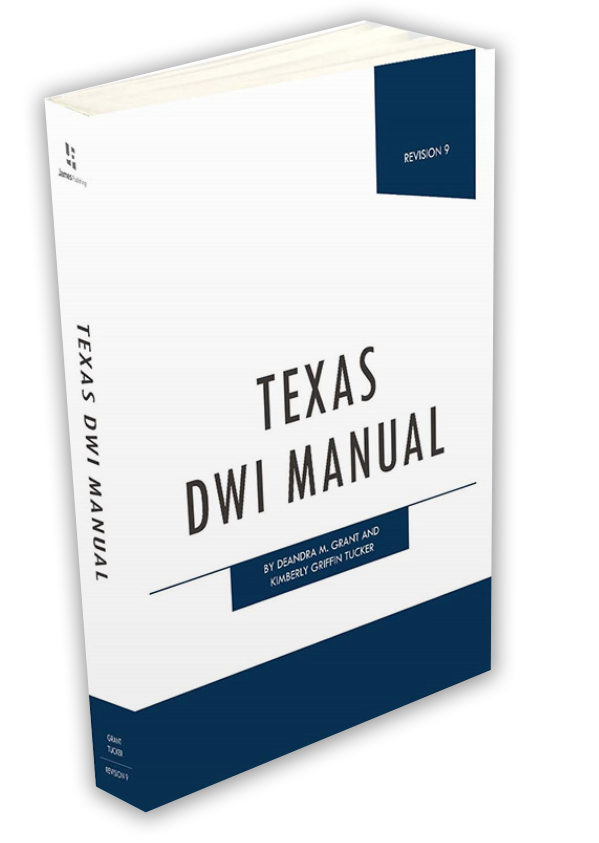Allen DWI and Criminal Defense Lawyers
With Offices in Dallas, Fort Worth, Allen, Denton, Waco & Austin



"Deandra Grant Law fights hard for their clients and is always willing to go above and beyond. They are the best firm for DWI cases in DFW and beyond. Definitely hire them to represent you in any pending cases."

"Deandra Grant made a tough situation so much better. She listened to my concerns and helped me so much with my case. I would recommend her to anyone needing legal services."

"Deandra Grant Law handled my case with diligence and professionalism. Deandra Grant's reputation is stellar and now I know why. She has a team of individuals who provide quality service."





Since 1994 when our doors opened, Deandra Grant Law has helped thousands of clients get their DWI charges reduced or dismissed. We're ready to fight on your behalf.

Managing Partner
Partner & Criminal Division Chief
Criminal Division Senior Associate
Criminal Division DWI Trial Chief
Immigration Division Chief & Criminal Division Deputy Chief
Criminal Division Associate


Fighting DWI charges can present many challenges, not only for the defense, but prosecutors as well. This is why it is important to be armed with the necessary knowledge so you understand the DWI process.
Attorney Deandra M. Grant is the co-author of the Texas DWI Manual, offering legal advice to both clients and fellow attorneys. Fighting DWI charges can present may challenges, not only for the defense, but prosecutors as well. This is why it is important to be armed with the necessary knowledge so that you understand the DWI criminal process.
Learn MoreIf you’ve found yourself on this page, chances are you’re facing a challenging moment in your life – one that requires careful consideration and decisive action. Being arrested for a DWI charge or a criminal offense can evoke feelings of uncertainty and worry about what lies ahead. At Deandra Grant Law, our Allen DWI and criminal defense lawyers understand the emotions you’re experiencing and are here to offer not only expert legal representation but also a sense of empathy and understanding during this difficult time.
Driving While Intoxicated (DWI) charges can have significant consequences, impacting your driving privileges, your reputation, and even your freedom. Our team of skilled Allen DWI defense lawyers are well-versed in the intricacies of DWI law, and we are dedicated to providing you with a defense strategy tailored to your unique circumstances. Attorney Deandra Grant, JD, GC, MS, is one of the most awarded and respected DWI authorities in the country. She is author of The Texas DWI Manual, certified in the science and testing of DWI enforcement, and respected by her peers as being a leader in her field.
At Deandra Grant Law, we are equipped to handle a wide range of DWI charges, including: Boating While Intoxicated (BWI), CDL DWI, Felony DWI, Hit and Run DWI, Multiple DWIs and Underage DWI.
In addition to our extensive DWI defense services, we also excel in providing effective representation for a variety of criminal defense charges. Our dedicated team of legal professionals is experienced in handling cases involving drug crimes, murder, theft, robbery, and white-collar crimes.
When confronted with criminal charges in Texas, enlisting the assistance of an attorney becomes paramount. Navigating the intricacies of the legal system demands a professional who comprehends the nuances of Texas law, can construct a robust defense tailored to your circumstances, and safeguards your constitutional rights throughout the process. A skilled attorney’s negotiation prowess can lead to reduced charges or even dismissals, while their courtroom experience ensures effective representation if the case proceeds to trial. Beyond legal experience, our attorneys provide emotional support during this challenging period, guiding you toward a positive outcome while safeguarding your future, freedom, and reputation.
When you choose Deandra Grant Law, you’re selecting a team that is committed to pursuing positive results for your case. We understand the gravity of the situation you’re in and will employ our legal experience and resources to create a strategic defense tailored to your unique circumstances. Our goal is to minimize the impact of the charges you’re facing and protect your rights every step of the way.
Choosing a criminal defense attorney
Why shouldn’t I use a court ordered attorney
Your rights after a drug crime arrest
Steps to take after a drug crime arrest
How can an attorney help me with a warrant?
Consequences of marijuana possession
How long does a criminal defense case take?
Being charged with a criminal offense in Allen, TX, can be a daunting and life-altering experience. It’s crucial to comprehend the legal landscape and the potential consequences that such charges can bring. Whether you’re facing theft, drug-related offenses, assault, or any other criminal charge, having a grasp of the basics can help you make informed decisions about your defense.
Criminal charges in Allen, TX, encompass a wide range of offenses, each carrying distinct legal implications. These charges can be broadly categorized into different classes, including misdemeanors and felonies, based on the severity of the offense. Misdemeanors generally involve less serious violations, while felonies are more serious crimes carrying harsher penalties.
If convicted of a criminal offense in Allen, TX, you could face various consequences, such as fines, probation, community service, or even incarceration. The severity of the penalties often depends on the nature of the crime and any previous criminal record you might have. Felony convictions can result in more significant penalties, including long prison sentences.
When facing criminal charges, it’s essential to explore potential defenses and legal strategies. We can investigate the evidence, interview witnesses, and scrutinize law enforcement procedures to build a strong defense tailored to your case. This might involve challenging the validity of evidence, questioning witness credibility, or addressing potential violations of your constitutional rights.
Navigating the intricacies of the legal system is complex, and attempting to do so without proper legal guidance can be risky. Our experienced Allen criminal defense attorneys can provide essential expertise, ensuring your rights are protected, and that you have a robust defense strategy in place. We can negotiate with prosecutors, represent you in court, and guide you through every step of the legal process.
If you’re facing criminal charges in Allen, TX, it’s crucial to take action promptly. Consulting with Deandra Grant Law can provide you with a clearer understanding of your situation and your options moving forward. Remember that you have the right to a fair trial and the opportunity to defend yourself against the charges.
After an arrest, it’s crucial to remain calm and exercise your right to remain silent. Avoid making any statements to law enforcement until you have legal representation.
An attorney can assess the evidence against you, help build a strong defense strategy, navigate legal procedures, negotiate with prosecutors, and represent you in court if necessary.
This question often pertains to penalties such as fines, probation, jail time, license suspension, and impact on employment or future opportunities. An attorney can provide insight into the potential outcomes based on your specific circumstances.
Attorneys can analyze the evidence to identify weaknesses in the case, potentially leading to dropped charges or reduced penalties through negotiations with the prosecution.
An attorney can review the procedures followed during testing, assess whether proper protocols were followed, and determine if the results can be challenged.
While not all cases go to trial, an attorney can discuss the likelihood of a trial, explain the process, and help you prepare if your case does proceed to court.
It’s essential to inquire about the attorney’s fees, payment plans, and whether you might qualify for a court-appointed attorney based on your financial situation.
Facing a Driving While Intoxicated (DWI) charge in Allen, TX, can have significant implications for your life. It’s crucial to comprehend the legal aspects surrounding DWI offenses, potential consequences, and the importance of seeking legal representation to navigate this complex situation.
In Allen, TX, a DWI charge occurs when an individual operates a motor vehicle while under the influence of alcohol or drugs, impairing their ability to drive safely. Texas law enforces strict penalties for DWI offenses, aiming to deter intoxicated driving and protect public safety.
The consequences of a DWI conviction can vary based on factors such as prior convictions, blood alcohol concentration (BAC) level, and whether any accidents or injuries occurred. Penalties can include fines, license suspension, mandatory alcohol education programs, probation, and even jail time. Subsequent DWI convictions can result in harsher penalties.
In Texas, the legal BAC limit for most drivers is 0.08%. For individuals under the age of 21, a BAC of 0.02% or higher can lead to a DWI charge. Additionally, commercial drivers are subject to stricter limits, with a legal BAC of 0.04% while operating a commercial vehicle.
When facing a DWI charge, it’s crucial to explore potential defense strategies with the assistance of our experienced Allen DWI attorneys. These strategies might involve challenging the accuracy of breathalyzer or blood test results, questioning the legality of the traffic stop, or raising doubts about the reliability of field sobriety tests.
Importance of Legal Representation
Dealing with DWI charges requires a comprehensive understanding of both the legal system and scientific aspects related to intoxication testing. Our experienced Allen DWI attorneys can provide essential expertise to protect your rights, challenge evidence, and build a strong defense tailored to your specific case.
Seeking Legal Guidance
If you’re facing DWI charges in Allen, TX, it’s imperative to take swift action. Consulting with Deandra Grant Law can help you understand the potential consequences, explore defense strategies, and make informed decisions about your case. Our guidance can significantly impact the outcome of your case and protect your rights.
If you find yourself facing the uncertainty of a recent DWI or criminal arrest in Allen, TX, know that you don’t have to navigate this challenging path alone. The legal team at Deandra Grant Law is here to stand by your side and provide the guidance you need during this critical time.
We understand the anxiety and questions that arise after an arrest, and we are dedicated to offering solutions that bring clarity and confidence to your situation. Our experienced Allen DWI and criminal defense lawyers possess the knowledge and skills to craft a robust defense strategy, uniquely tailored to the specifics of your case. From DWI charges to a range of criminal offenses, our team is well-equipped to handle various legal challenges.
To take the first step towards securing your future, we invite you to reach out and schedule a free consultation with us. During this confidential discussion, you’ll have the opportunity to share the details of your case, ask questions, and receive an initial assessment of your situation. We understand that each case is different, and our commitment is to work tirelessly to obtain a positive outcome for you.
At Deandra Grant Law, your well-being and rights are our utmost concern. Our Allen DWI and criminal defense lawyers are here to guide you through the legal process, provide unwavering support, and employ our legal acumen to advocate on your behalf. Remember, when faced with a DWI or criminal charge, you have the power to choose the path of a strong defense.
Your future deserves the right defense. Contact Deandra Grant Law now, and let us help you pave the way towards a brighter tomorrow. Your journey begins with a simple step—reach out to us for a free consultation and take control of your defense. Your case matters, and our Allen DWI and criminal defense lawyers are here to make a difference for you.
![]()
“Deandra Grant Law handled my case with diligence and professionalism. Deandra Grant’s reputation is stellar and now I know why. She has a team of individuals who provide quality service.”